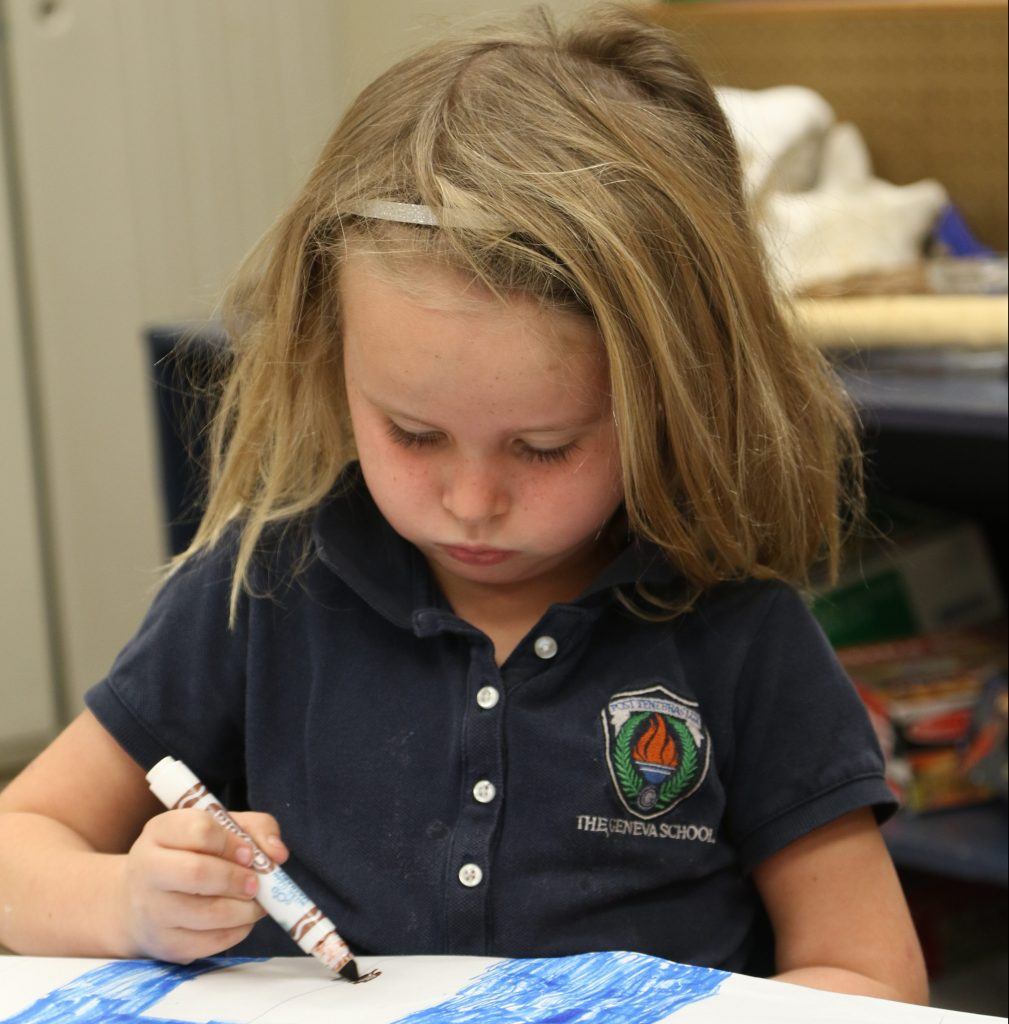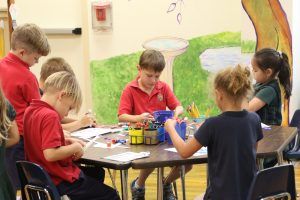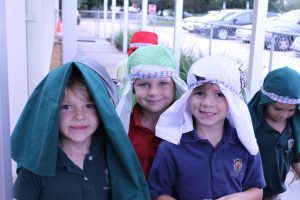When Children Say, “I Can’t”

“I can’t do this!” One kindergarten student voices frustration in class while a fellow classmate quickly encourages, “Can’t isn’t allowed in kindergarten, remember? We can all try!”
However, memories of this conversation haunted me as I prepared to fly to Accra, Ghana, to work with the Rafiki Foundation and their children’s home and school there. “I can’t” was a frequent comment I made as I rushed to get my passport renewed, get visas in place, pack appropriate clothes for extreme weather (and under 50 pounds of course), and determine where I was going to spend the night in Dubai, UAE, during my overnight layover.
Once I arrived, “I can’t” meant taking the heat—it was oppressively hot, with relatively no air conditioning. The first day I was there saw me tasked with helping one of the ROS (Rafiki Overseas Staff) deliver shoes to the 118 children in the village. I was miserable, promising myself I would never complain about snack duty in Florida heat.
Then I got into the classroom, and I thought classical school “can’t” work here. I have always thought that the classical model was beneficial to all—I even wrote a graduate school thesis on how it would be the right way to educate students whose learning had been interrupted. Yet faced with reality, doubt crept in. There were cultural issues; for example, early childhood education is treated like daycare and not considered necessary. Additionally, all of these children were orphans with a host of emotional and behavioral issues that come along with that. I knew I would need to do some adapting to make the classical model work in Ghana. I didn’t realize how the lack of resources, and the inability to get those resources, would severely limit what I could do, or more importantly, limit what I could train the teacher to do. Something as easy as using salt to practice letter formations is not so easy in a classroom with equatorial weather and no climate control. Limited access to internet and construction paper also made adapting art projects more complicated. I was humbled daily by how unbelievably blessed I am in my Geneva classroom.
However, despite the challenges, it quickly became obvious when I was teaching that, in fact, classical education does work in Ghana. During my time helping before school started, I was sorting and stamping some books that had come in from the USA, and came across My Father’s Dragon, a whimsical story that we read to TGS kindergarten students during our afternoon rest time. My students at Geneva had really liked this story about a boy and an adventure to rescue a dragon that his neighbor’s friendly talking cat told him about. So when it came time for me to lead the class, I started reading it to my African students. I was uncertain about how it would go over, due to some of the idioms that I didn’t think would translate, and since a reading time like that was not part of their normal routine. At first I thought I was right—the children did not seem engaged at all. But soon enough they would cheer when the book came off the shelf and dream up possible endings to the story during recess time. I often reflected back upon those conversations my students had at Geneva when faced with uncertain results or frustration, and I was glad I had persevered and tried something new.
There are a myriad of other stories I could tell for all the instances I thought “I can’t” over that month long trip. Not surprisingly, God proved me wrong over and over again. I am blessed to serve a God who does not get tired of proving that I can do things I feel I can’t, or more accurately, he can do them through me. I am reminded of James 1:5-6 that says “Let [them] ask God, who gives generously to all without reproach, and it will be given [them]. But let [them] ask in faith, with no doubting, for the one who doubts is like a wave of the sea that is driven and tossed by the wind.” God showed me many times on that trip that I need to learn the very lesson I teach the students—you have to at least give it a try.
by Jenna Bagnoli, Kindergarten Instructor




